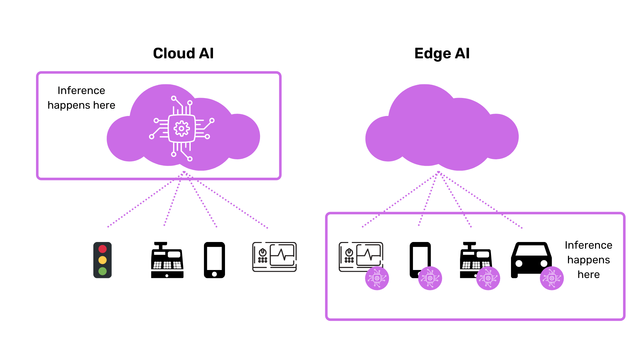
Located at the Walsh School of Foreign Service, the Center for Security and Emerging Technology focuses on the security impacts of emerging technologies. The center conducts research and facilitates academic work in the field of security and emerging technology, delivering nonpartisan analysis to the policy community. CSET aims to educate the next generation in policymakers, analysts, diplomats. Read on to learn more about CSET. Here are some highlights about the research of the center.
Center for Security and Emerging Technology
Georgetown University's Center for Security and Emerging Technology has been granted a $55million grant by the Open Philanthropy Project. This money will be used to create a new think tank. This group is dedicated policy research at both the national and international borders. Jason Matheny was formerly director of the Intelligence Advanced Research Projects Activity. Matheny's vision is to help policymakers better understand the security implications of new technologies and the potential threats they pose to society.

Lead Analyst
You will be a Lead Analyst for the CSET Georgetown and conduct surveys on U.S.-China S&T Competition and global movement of emerging technology talent. With Professor William Hannas as your colleague, you will design and carry out survey projects. In addition to his research at the Center, he is also an active member of the university's student government. His research interests extend from cybersecurity to foreign/internal policy.
Director of Data Science
Catherine Aiken works as Director of Data Science in CSET Georgetown. She graduated with a B.A. in Mathematics and her Master's in Data Science from George Washington University. Before joining CSET, she managed the communications department and conducted human-subjects research at the Carnegie Endowment for International Peace. She earned her doctorate from the University of Maryland in political science and has a B.A. Georgetown University.
Faculty
The Edmund A. Walsh School of Foreign Service calls for applications for the Gracias Family Gracias Chair in Security and Emerging Technology. This position will include administrative and teaching responsibilities, and possibly affiliation with Science, Technology, and International Affairs Program. This position can be used to support the School's strategic vision. For more information, please visit the CSET Georgetown website. Deadline for applications is June 15, 2018.

Subgrantees
Nearly $100 million has been awarded to the Center for Science and Technology at Georgetown University. The Center is funded by contributions from other organizations and foundations like the Bill and Flora Hewlett Foundation. The new grant will help the Center sustain itself for the next 20 years, allowing it to expand its staff and research capabilities, and inform policymakers on emerging technologies. The Center is fully committed to science and technology advancement for the benefit humanity. This large donation will make a significant contribution towards the future of CSET.
FAQ
Which countries are currently leading the AI market, and why?
China leads the global Artificial Intelligence market with more than $2 billion in revenue generated in 2018. China's AI industry is led by Baidu, Alibaba Group Holding Ltd., Tencent Holdings Ltd., Huawei Technologies Co. Ltd., and Xiaomi Technology Inc.
China's government is heavily investing in the development of AI. The Chinese government has set up several research centers dedicated to improving AI capabilities. These include the National Laboratory of Pattern Recognition, the State Key Lab of Virtual Reality Technology and Systems, and the State Key Laboratory of Software Development Environment.
Some of the largest companies in China include Baidu, Tencent and Tencent. All these companies are actively working on developing their own AI solutions.
India is another country that has made significant progress in developing AI and related technology. The government of India is currently focusing on the development of an AI ecosystem.
What do you think AI will do for your job?
AI will eradicate certain jobs. This includes drivers, taxi drivers as well as cashiers and workers in fast food restaurants.
AI will lead to new job opportunities. This includes positions such as data scientists, project managers and product designers, as well as marketing specialists.
AI will make current jobs easier. This includes jobs like accountants, lawyers, doctors, teachers, nurses, and engineers.
AI will improve the efficiency of existing jobs. This includes customer support representatives, salespeople, call center agents, as well as customers.
Where did AI come from?
Artificial intelligence was established in 1950 when Alan Turing proposed a test for intelligent computers. He believed that a machine would be intelligent if it could fool someone into believing they were communicating with another human.
John McCarthy, who later wrote an essay entitled "Can Machines Thought?" on this topic, took up the idea. In 1956, McCarthy wrote an essay titled "Can Machines Think?" It was published in 1956.
Which are some examples for AI applications?
AI is used in many fields, including finance and healthcare, manufacturing, transport, energy, education, law enforcement, defense, and government. Here are just some examples:
-
Finance - AI is already helping banks to detect fraud. AI can scan millions upon millions of transactions per day to flag suspicious activity.
-
Healthcare – AI is used in healthcare to detect cancerous cells and recommend treatment options.
-
Manufacturing - AI is used in factories to improve efficiency and reduce costs.
-
Transportation - Self driving cars have been successfully tested in California. They are being tested in various parts of the world.
-
Utilities are using AI to monitor power consumption patterns.
-
Education - AI can be used to teach. Students can, for example, interact with robots using their smartphones.
-
Government - Artificial Intelligence is used by governments to track criminals and terrorists as well as missing persons.
-
Law Enforcement – AI is being utilized as part of police investigation. Search databases that contain thousands of hours worth of CCTV footage can be searched by detectives.
-
Defense - AI can both be used offensively and defensively. Artificial intelligence systems can be used to hack enemy computers. Protect military bases from cyber attacks with AI.
What is the current state of the AI sector?
The AI industry continues to grow at an unimaginable rate. The internet will connect to over 50 billion devices by 2020 according to some estimates. This means that all of us will have access to AI technology via our smartphones, tablets, laptops, and laptops.
Businesses will need to change to keep their competitive edge. If they don’t, they run the risk of losing customers and clients to companies who do.
It is up to you to decide what type of business model you would use in order take advantage of these potential opportunities. What if people uploaded their data to a platform and were able to connect with other users? Perhaps you could offer services like voice recognition and image recognition.
Whatever you decide to do, make sure that you think carefully about how you could position yourself against your competitors. It's not possible to always win but you can win if the cards are right and you continue innovating.
What can AI do?
AI serves two primary purposes.
* Prediction - AI systems can predict future events. AI systems can also be used by self-driving vehicles to detect traffic lights and make sure they stop at red ones.
* Decision making-AI systems can make our decisions. Your phone can recognise faces and suggest friends to call.
How does AI affect the workplace?
It will change our work habits. We'll be able to automate repetitive jobs and free employees to focus on higher-value activities.
It will improve customer services and enable businesses to deliver better products.
It will allow us future trends to be predicted and offer opportunities.
It will allow organizations to gain a competitive advantage over their competitors.
Companies that fail AI will suffer.
Statistics
- In 2019, AI adoption among large companies increased by 47% compared to 2018, according to the latest Artificial IntelligenceIndex report. (marsner.com)
- Additionally, keeping in mind the current crisis, the AI is designed in a manner where it reduces the carbon footprint by 20-40%. (analyticsinsight.net)
- A 2021 Pew Research survey revealed that 37 percent of respondents who are more concerned than excited about AI had concerns including job loss, privacy, and AI's potential to “surpass human skills.” (builtin.com)
- While all of it is still what seems like a far way off, the future of this technology presents a Catch-22, able to solve the world's problems and likely to power all the A.I. systems on earth, but also incredibly dangerous in the wrong hands. (forbes.com)
- According to the company's website, more than 800 financial firms use AlphaSense, including some Fortune 500 corporations. (builtin.com)
External Links
How To
How to Setup Google Home
Google Home is an artificial intelligence-powered digital assistant. It uses sophisticated algorithms and natural language processing to answer your questions and perform tasks such as controlling smart home devices, playing music, making phone calls, and providing information about local places and things. Google Assistant lets you do everything: search the web, set timers, create reminds, and then have those reminders sent to your mobile phone.
Google Home is compatible with Android phones, iPhones and iPads. You can interact with your Google Account via your smartphone. Connecting an iPhone or iPad to Google Home over WiFi will allow you to take advantage features such as Apple Pay, Siri Shortcuts, third-party applications, and other Google Home features.
Google Home offers many useful features like every Google product. Google Home can remember your routines so it can follow them. You don't have to tell it how to adjust the temperature or turn on the lights when you get up in the morning. Instead, you can say "Hey Google" to let it know what your needs are.
These steps will help you set up Google Home.
-
Turn on Google Home.
-
Hold the Action button in your Google Home.
-
The Setup Wizard appears.
-
Click Continue
-
Enter your email address.
-
Register Now
-
Google Home is now online